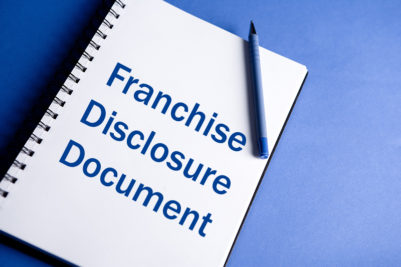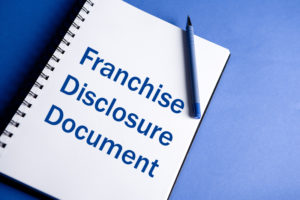
Item 20: A Goldmine in the Franchise Disclosure Document
June 7, 2016 12:21 pm 1 Comment One of the great benefits of buying a franchise in America is that federal law requires franchisors to give every prospective franchisee a Franchise Disclosure Document (FDD), including Item 20, which is a goldmine of information.
One of the great benefits of buying a franchise in America is that federal law requires franchisors to give every prospective franchisee a Franchise Disclosure Document (FDD), including Item 20, which is a goldmine of information.
But prospective franchisees routinely overlook or minimize the FDD, and in doing so they miss out on using the content of Item 20, arguably the most significant section of the FDD. It contains a list of the franchisor’s outlets, including contact information for existing and former franchise owners.
Franchise 411: Good, bad, ugly
Now think about that for a moment. Let’s say you wanted to buy my business, and there are a dozen, or several dozen, people who know all about my business: the good, the bad and the ugly.
These people could tell you if my business is worthy of your investment. They not only could tell you how much money the business spins off, but they could tell you how the money is made. They could also tell you how money is lost.
These people know it all. Am I a good guy? They know. Am I honest? They know. Do I help other people? They know. Does my business have a good reputation among consumers? They know. Is there a future for my business? They know.
Given the opportunity, would they buy my business? Just ask them. They’re not obligated to answer for anyone but themselves. In other words, you can trust what they tell you.
Open the door to the goldmine
Now, if you’re presented with the key to this goldmine of information, are you going to just sit on the key? Or use it?
Would you believe that many prospective franchisees just sit on the key?
They never unlock the door to the goldmine! They never step in and gather the wealth of information that sits there waiting for them. How is that possible?
Well, Item 20 is in the back of the book. It’s Item 20 of a document that includes only 21 items. Maybe some folks think that if it were of any importance, Item 20 would appear at least in the front of the document!
But there it is, in the back of the FDD, and you’ve got at least two weeks (the required disclosure period) to tap into Item 20.
Item 20: Must read info
Would you squander an opportunity to let other people help you figure it all out before buying a franchise?
Sadly, some people must answer yes. Many prospective franchisees do not read the FDD, even though it’s written in plain English and not legalese. They give the document to their attorneys to read, and that’s a huge mistake. There ought to be a law that requires attorneys to insist that their clients read the FDD, but on the other hand, that’s like telling a teenager not to touch a hot stove! Some things shouldn’t need to be said.
So what is this Item 20?
Item 20 is a directory of people who currently own the same franchise, and people who have owned that franchise in the past. Surely, if you’re thinking that you, too, wanted to buy this franchise, you’d want to talk to these people. They’ve got answers to all your questions!
Real answers from real franchisees
And their answers may not be the same as the answers you’ve been getting from your franchise broker, or the franchisor’s sales representative. Or, they may be exactly the same! Either way, can you possibly afford to miss talking to these people and hearing what they’ve got to say?
Whether you call a few of these people and talk to them by phone for a few minutes, or a couple of hours, or you visit one or two of them in person, or – how about this – you go to work for a franchisee for a couple of weeks or months – some of these people clearly understand how the franchise works.
Existing and former franchisees know how to turn an investment into a payday because they’ve either done it, or they know others who have.
They know what to do, when to do it, and how to do it. They know what to avoid, and even who to avoid. And they know so much more.
Why do franchisees fail or succeed?
If they haven’t succeeded as franchisees, they can tell you why. If they know others in the franchise network who have been wildly successful – or others who have failed miserably – they can tell you why.
What would they do if they were you? What would they do differently if they were starting anew?
I can’t fathom any reason to miss out on talking to these people and tapping into their wealth of information.
Can you?
Item 20 gives you an advantage
And yet, when I ask franchisees, especially franchisees who aren’t doing well with their franchise, or who aren’t happy in their business, “Did you contact existing or former franchisees listed in Item 20?” they frequently say no.
What I’d like to say to those folks is, “Well, you got what you deserved,” but of course, that’d be rude!
It’d also be true. If you don’t utilize the information that’s given to you for the purpose of investigating a franchise opportunity, how can you blame anyone but yourself if the opportunity doesn’t work out?
I’d like to think that readers of this blog would never squander the opportunity to become well informed before investing in a franchise. Give yourself the advantage of Item 20.
Fear of contacting franchisees
Prospective franchisees sometimes avoid contacting existing franchisees for fear they won’t talk to them. And that’s understandable.
I contact dozens and sometimes hundreds of franchisees for various projects – sometimes because I want to quote them in articles or book chapters, and other times because I’m helping someone perform their due diligence prior to investing in a business.
Some franchisees refuse to come to the phone, or to return a call. Why? Could be it’s a bad day (so wait a couple of days and call again), or it could be they don’t want to talk about their business. Failing franchisees especially avoid calls from prospective franchisees.
Even some successful franchisees avoid calls from prospective franchisees because they don’t want the franchise network to grow. They think more franchisees would mean less opportunity for them – sometimes, sadly, that’s true, especially among low volume franchised businesses – but it’s not usually the case.
Some franchisees avoid calls from prospective franchisees because they think it’s a waste of time. And that’s because too often the prospective franchisees are not prepared so, in fact, it is a waste of time. Before you call franchisees, arm yourself with questions. This is a good time to read the Amazon best seller: 101 Questions to Ask Before You Invest in a Franchise.
Call a random number of franchisees
In franchising, it’s always important to remember that not all franchisees are the same. Some, even some failing franchisees, will be pleased to talk to you, and answer your questions. Some will also invite you to visit with them to learn more about the franchise opportunity.
If Item 20 includes 50 to 100 existing franchisees, randomly call 10 of them. If those 10 are not responsive, call 10 more. If you contact them randomly (and not because someone told you who to call), you’ll eventually gather information from at least 10 to 12 franchisees, and that’s a good sample size. That’s your goldmine!
Franchisors and their representatives are not permitted to tell you which franchisees to call, and which to ignore, and that’s for your protection. A franchisor could stack the list with franchisees that see things only the way the franchisor does, or franchisees that get rewarded for talking to prospective franchisees, and stacking the list in any way is against the law.
Even dissatisfied franchisees have a right to be heard, and you want to hear what they have to say. What went wrong? Keep in mind, however, that disgruntled franchisees may say anything to discredit a franchisor. But again, that’s why it’s important to call more than just a couple of franchisees.
Look for franchisees like yourself
Franchisors are permitted to tell you the names of franchisees that have backgrounds similar to your own. For example, if you’re a teacher and you want to speak with franchisees that were teachers, the franchisor can share that information with you. If you’re buying your franchise in a small city, the franchisor can give you the names of existing small-city franchisees. And so forth. There’s nothing wrong with matching up your circumstances and interests to existing franchisees.
Should you worry that the franchisor pays franchisees to tell prospective franchisees only good things about the franchise opportunity?
If you’re concerned about it, raise the issue with both the franchisor and the franchisees. For example, ask the franchisees, “Do you get paid to say good things about the franchise?”
If the franchisor rewards franchisees for speaking to prospective franchisees, the rewards must be disclosed in the FDD. Failure to disclose this information puts the franchisor at risk with the federal government.
If you can find them, former franchisees can help
You may be wondering about the former franchisees listed in Item 20. Their stories could be useful, but first you’d have to find them. Franchisors are required to disclose the last known contact information for former franchisees, but once they leave the franchise network these franchisees are usually difficult to track down. A franchisor is not obligated to track them down and update their contact information year after year.
In some cases, that’s well enough for the franchisor because some of these franchisees were disgruntled when they exited the system. Some sued the franchisor and won. Others lost their life savings. These aren’t the kinds of folks franchisors want you to talk to.
On the other hand, former franchisees also include successful franchisees. These are people who sold their business and retired. They’d be pleased to talk to you and tell you exactly how to replicate their success. But again, they may be difficult to find.
If you’re insistent about speaking with former franchisees, successful or not, I suggest you ask existing franchisees. If anyone knows how to contact former franchisees, it’s existing franchisees. Once people become part of a franchise network, they tend to stay in touch with one another for many years.
In the final analysis, whatever you decide to do about Item 20, be sure to make use of it. It’s a goldmine of information for prospective franchisees.
Tags: franchise disclosure document, Franchise due diligence, Item 20Categorised in: Blog Articles, Buy a Franchise, Buying a franchise, Franchise Documents, Franchise due diligence, Questions to ask to buy a franchise
This post was written by Dr. John Hayes

1 Comment